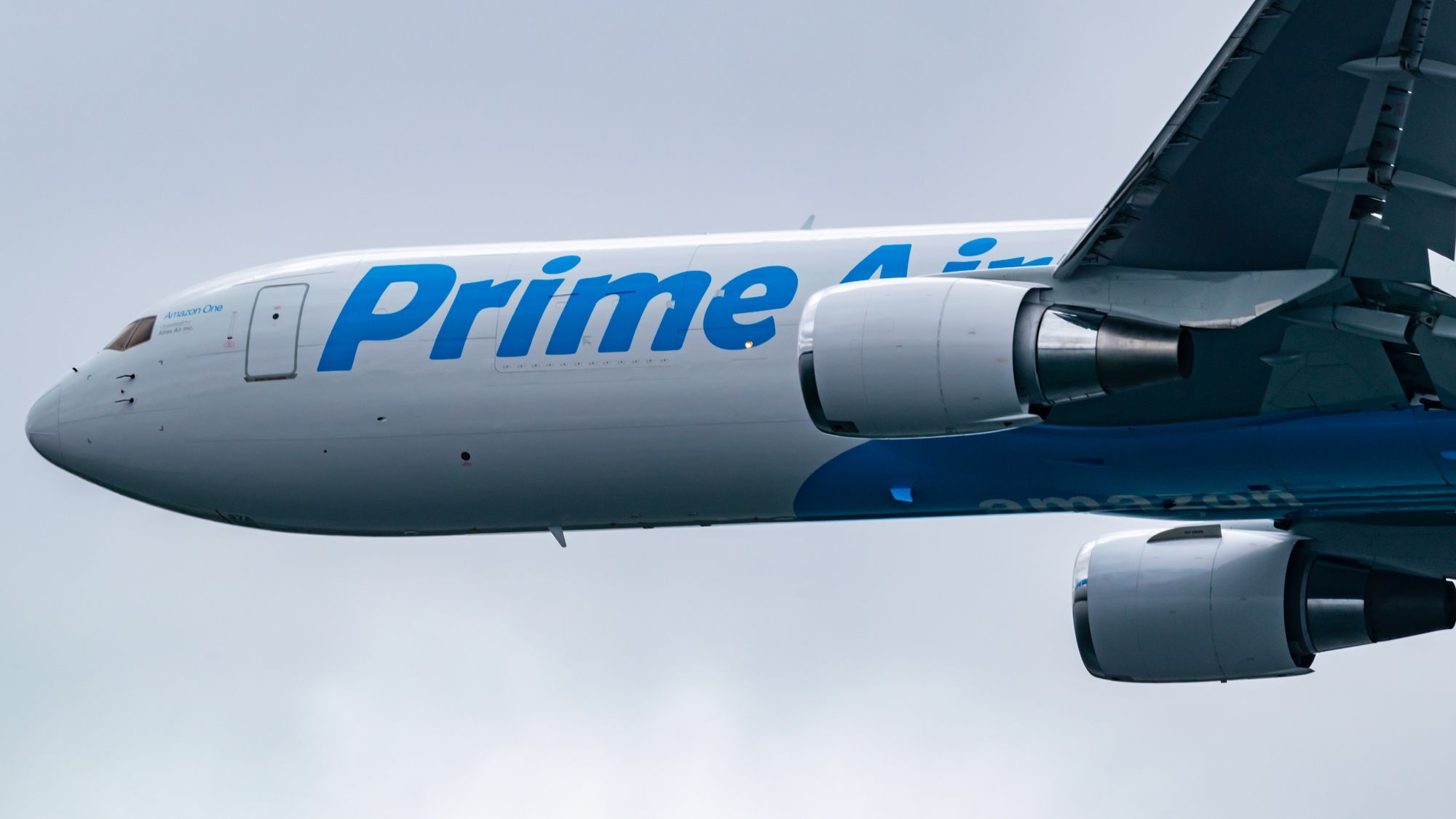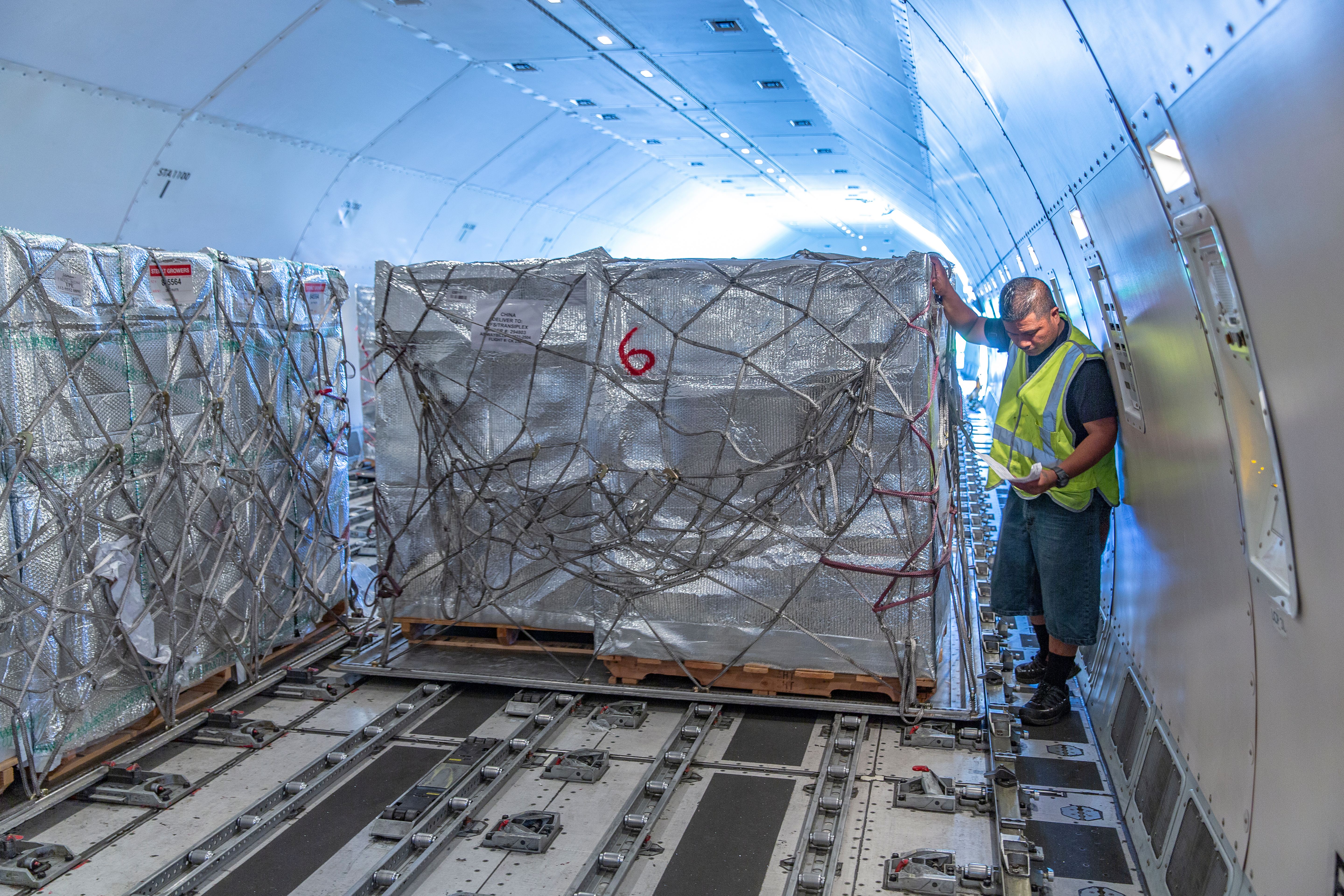Amazon’s Prime Air contractor, Air Transport Services Group (ATSG), projects flying less in 2023 than in previous years. With the COVID-19 pandemic in retreat and other issues reducing demand for air cargo, the Amazon Boeing 767s will be in lower demand.
Combination of factors affecting ATSG
ATSG gave outlook guidance to its investors in an update on February 6th. In the statement, ATSG said they intend to...
"...operate 767 freighters dedicated to principal customers DHL and Amazon for reduced schedules and fewer block hours per aircraft across the United States in the first half of 2023 versus 2022. Both companies are adjusting their ground and air distribution and fulfillment networks in the United States to conform to reduced U.S. economic growth and consumer spending levels in the first half of 2023."
Furthermore, ATSG will continue to lease and operate four of the twelve branded Boeing 767-200 freighters that were previously with Delta Air Lines. Three of the remaining eight 767s are nearing the end of their useful life, but the engines will still be helpful. The other five will likely either be reused by Amazon or leased/sold to another customer.
Get the latest aviation news straight to your inbox: Sign up for our newsletters today.
Even with the Boeing 767 fleet contraction, ATSG intends to grow a new Airbus A330 freighter fleet. The statement says there are commitments to lease more than two-thirds of the thirty A330-300s due to come online between 2024 and 2028. ATSG claims the A330s are ideal widebody freighters for regional missions, with greater payload and range than the 767-300s.
Air cargo demand is slightly increasing at Amazon’s Seattle home, but…
A review of Port of Seattle airport statistics for all cargo and total weight by airline found a small decline in 2022 versus 2021 tonnage. For ATSG, that weight dropped by 5,849,000 pounds to 699,192,000 pounds in 2022. Overall, Seattle-Tacoma International Airport took on 174,436,000 pounds of additional air cargo in 2022.
Nonetheless, International Air Transport Association (IATA)’s Director General Willie Walsh recently explained there are global headwinds against air cargo demand.
“In the face of significant political and economic uncertainties, air cargo performance declined compared to the extraordinary levels of 2021. That brought air cargo demand to 1.6% below 2019 (pre-pandemic) levels. The continuing measures by key governments to fight inflation by cooling economies are expected to result in a further decline in cargo volumes in 2023 to -5.6% compared to 2019.
"It will, however, take time for these measures to bite into cargo rates. So, the good news for air cargo is that average yields and total revenue for 2023 should remain well above what they were pre-pandemic. That should provide some respite in what is likely to be a challenging trading environment in the year ahead.”
The statement also said that North American carriers like ATSG faced a 5.1% reduction in demand in 2022 compared to 2021 and -6.3% for international operations while the capacity to carry air cargo increased by 4.2%, with a 4.9% increase for international operations. This is before ATSG’s efforts to bring online their more capable A330s.
Read more of our coverage of air cargo.
What is your assessment of these developments? Please share with civility in the comments.
Sources: CNBC, Port of Seattle, IATA


